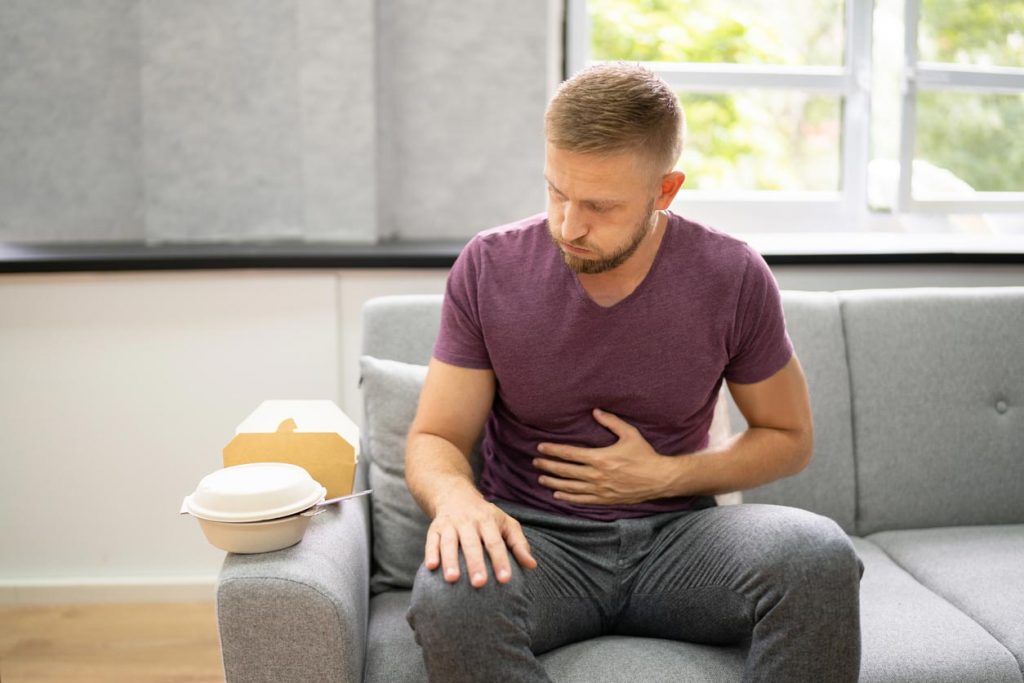5 lifestyle changes that can ease IBS symptoms
IBS is a chronic condition that affects the colon. Although it’s not considered to be dangerous, IBS symptoms can be uncomfortable and sometimes even painful.
The cause of IBS isn’t known, but certain things can trigger symptoms in some people, including stress, infection, medications, and some foods.
IBS can sometimes be confused with other chronic bowel conditions such as Crohn’s disease, ulcerative colitis, or even bowel cancer, so it’s important to seek a medical diagnosis to rule out more serious issues and ensure you know exactly what you’re dealing with.
Your doctor may diagnose IBS just by asking you some questions about your symptoms, but if you’re over 40 or have a family or personal history of bowel cancer, they may ask you to undergo more testing, possibly including:
· A general check-up
· A stool test
· A colonoscopy

What lifestyle changes can I make to ease IBS symptoms?
Although there is no cure for IBS, there are things you can try that may relieve your symptoms. What works for one person may not work for another, so it may be helpful to try a range of approaches one at a time so you can identify what helps.
1. Reduce stress
Your stress levels can have a significant effect on your gut and digestive function, and that can be even more pronounced in IBS sufferers. Finding ways to reduce stress in your day may provide relief from your symptoms. This can be as simple as taking a regular walk outside or daily meditation, or you may wish to make bigger lifestyle changes or seek support, such as counselling or hypnotherapy.
2. Increase your fibre intake
Some IBS sufferers find increasing their fibre intake can help to avoid bloating by keeping things moving through the bowel. Try to ensure you’re having a serve of fibre with your breakfast (such as a high fibre cereal), as well as at least five serves of fruit and vegetables throughout your day. You can also bolster your fibre intake with a supplement if you’re not getting enough.
3. Eliminate trigger foods
Some food and drink are known to trigger or exacerbate IBS symptoms, so it may help you to be more comfortable on a daily basis if you eliminate or reduce your intake of them. These triggers include:
· Fizzy drinks
· Alcohol
· Artificial sweeteners such as aspartame, sorbitol and mannitol
· Rich or fatty foods
· Processed foods
· Spicy foods
· Lactose (natural sugar occurring in dairy foods)
· Beans and lentils
· Gas-inducing foods such as onion, garlic, cauliflower, cabbage and brussel sprouts.
Many sufferers of IBS have found relief by using the low FODMAP diet, which eliminates groups of foods which contain natural sugars that can be tough to digest. This is best done under the supervision of a dietitian or doctor because it requires stringent elimination testing in order to identify which foods are causing digestive problems.

Increase your fluid intake
Increasing fluid can have a similar effect to increasing your fibre intake in that it can help to keep your digestive system moving in a healthy way. Try to ensure you have at least eight cups of water or other non-caffeinated drinks each day.
Physiotherapy
In some sufferers of IBS, improving the function of the pelvic floor can help to reduce symptoms. Seeing a physiotherapist can help you to address any muscle tone issues or dysfunction.
To speak with an InstantScripts Doctor:
Request a ConsultationIf you have run out of your script:
Request a ScriptThis article was written by Carolyn Tate, a Brisbane-based writer with a particular interest in women’s health, mental health and living well. Carolyn holds a Bachelor of Professional Writing and a Bachelor of Political Science.
© InstantScripts
Level 8 / 637 Flinders St.,
Docklands VIC 3008

